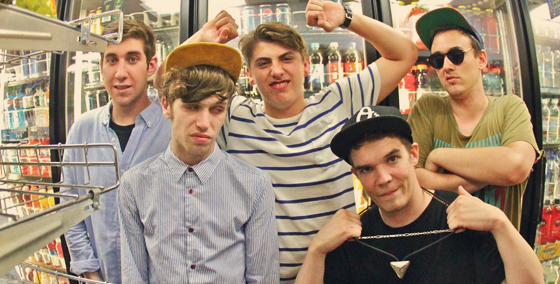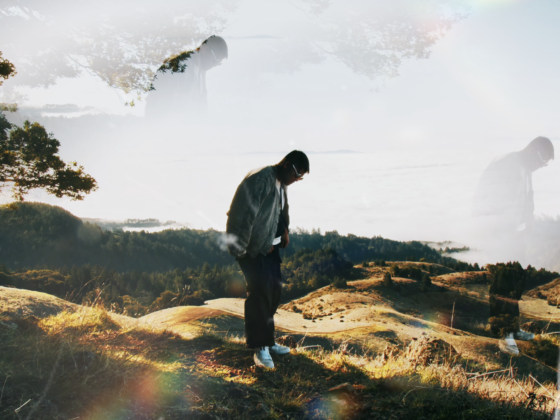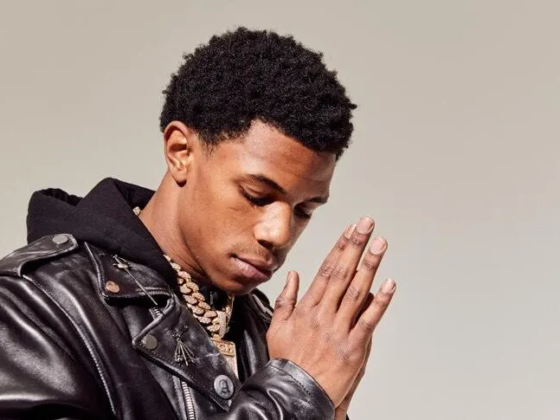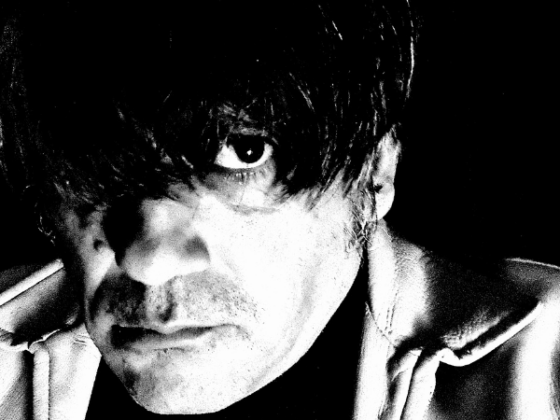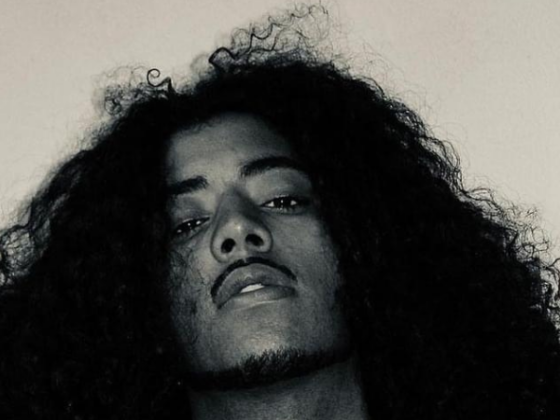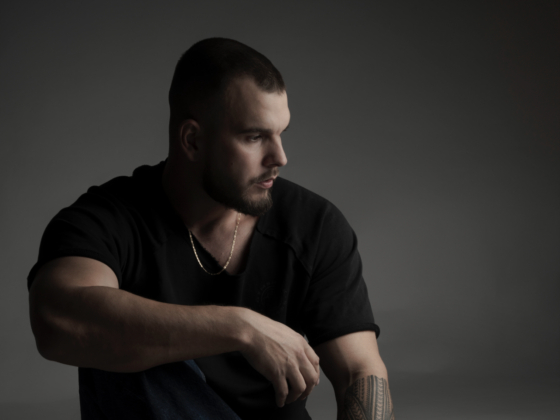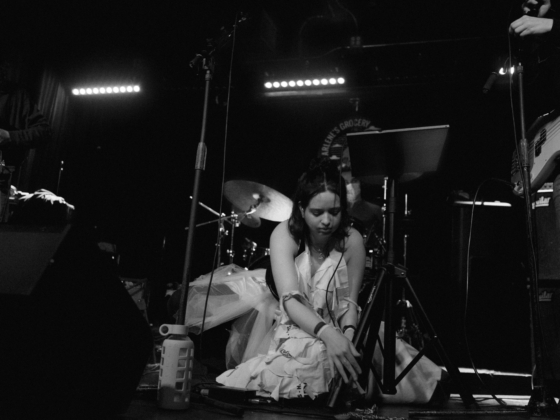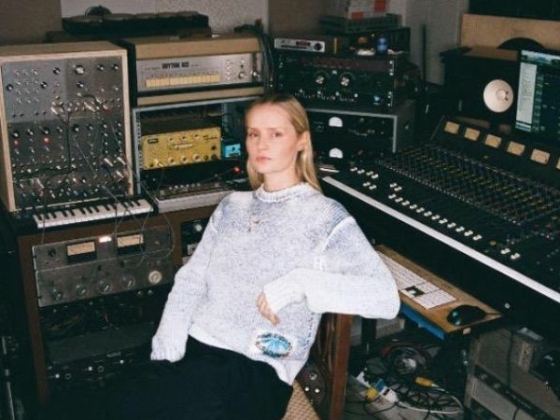In the second of two belated Mutek interviews (see our preview and recap of the festival), here is my brief (but substantive) chat with Berlin's Robert Henke of Monolake fame. Henke has had a long history with Mutek, a festival known for its support of art, technology, and innovation alongside (and within) music, and his work as part of Monolake has been highly influential.
Former partner Gerhard Behles has left Monolake to run Ableton, but Robert Henke has been holding down the fort, with February 2012 release Ghosts (out on Monolake's own label, Imbalance Computer Music), the second part of a trilogy that started with 2009's Silence. In a world where electronic music is often put out extremely rapidly, with little room to absorb or think about a given release, it's refreshing to see someone spending years on an album, and the introspection on Ghosts shines through.
Read on for Henke's thoughtful take on the Mutek festival, how solo electronic musicians can feed off one another artistically, how he keeps his shows as live as possible, and how art and music inevitably intertwine.
EARMILK: You definitely have a history with Mutek. So do you want to talk about your relationship with Mutek in the past and what you've sort of done with them and how maybe that's been beneficial to you?
Robert Henke: Well, if I remember correctly I was at the very first Mutek which was not even called Mutek yet, and which was just the side program of a film festival. And well, it just happened that I liked the festival and the whole programming and the city, so I had a pretty good time. And it just happened that I was invited again a few years later, and it was again a really nice experience.
And so I guess in a way I became – it sounds a little bit strange but it's how I perceived it at this time. I became a bit a part of the Mutek family because we were also travelling together most of the – at some point Mutek expanded to touring to Chile and Mexico and other countries. And it felt a little bit like being on tour, and it was really nice. It had a different vibe than just coming to a festival, doing the show and leaving.
So I feel, on a quite personal level, connected with this festival. And this definitely makes it special because you come here and you feel you're amongst people who share similar ideas. So it's one of the festivals where I really try to see as much as possible all the other concerts and where I constantly meet the other people here. And that's a huge part of the fun. And I did hear all kinds of projects. I think pretty much everything I do was at some point represented here. I did club shows like tonight. I did listening concerts with a seated audience. I did performance somewhere between installation and in concert.
EARMILK: How do feel like art and music work together and why is the visual aspect important?
RH: Well, I think that's two very different approaches. One approach is to really consider visual arts and music as a unity that already is a consideration when you make the music, for instance, so you don't make the music enough to where you just think about the visuals. But it's a process where each of those parts is equally important and developed at the same time. That's, for instance, the case in this project which is called "Fundamental Forces" which is shown here at the CineChamber, where the audio side and the visual side were really developed at the same time. And every enhancement in the video, enforces an enhancement in the audio side, and the other way around.
And then there's another type of visual interaction with music that at the beginning came more from a feeling of needing to show something on stage with a laptop performer. Back in the days where people had lots of hardware there was something to see. You had all these people with their big machines on stage. And then came the laptop era, and suddenly there was this one guy behind the screen. The sudden appearance of the VJ culture is highly connected with this, of course, because there was suddenly a need to show something on stage. I think a place of this size and just seeing a performer with a laptop on stage without any visual component, it's a challenge. And so I see both aspects of it. They are very different than the way they work. In one way it's constructed simultaneously and this one unity can't be seen separate. And the other possibility is to have a visual aid on.
[soundcloud url="https://api.soundcloud.com/tracks/32098764" params="show_comments=false&auto_play=false&color=000000" width="100%" height="81" iframe="false" /]
EM: What are your thoughts behind tonight's performance?
RH: Well, basically from when I just look at my own set, what I'm doing here is I present the music from the last album, which is called Ghosts, in a way which I think is an appropriate way to present it which incorporates a visual counterpart, which incorporates improvisational elements which are really important to me.
When I play live I want to really play live, and I want to do this as much as possible. So there needs to be room for unexpected things to happen. There needs to be room for actually being good in what you do. And if you just press play you can't be good. So I have some challenges which can go wrong. And if things can go wrong, then things also can be really good.
So that's from my personal perspective what I'm gonna do. And in a wider sense, I'm very happy about the programming of the whole night because Sam Shackleton is someone whose music I really, really deeply love and who is also a good friend. And with Jeff Mills it's in a way a similar emotional feeling. I’m really happy to see him. And I really admire his work. Having a night where's the dark slowness of Shackleton as an introduction into what I do on stage and what Tarik is doing visually and then having to bridge to Jeff Mills is something where I'm almost scared because it seems to be such a perfect combination. So I'm almost a bit scared that things go wrong because it could be so cool. The set up is so beautiful. Let's hope it all works out.

EM: Have you ever collaborated with Shackleton or Jeff Mills in the past?
RH: Now since you asked it I'm confused 'cause it's so likely. It wouldn't surprise me, but I think we never did it. I think we considered it. That's funny. I really don't know if I have a Shackleton remix of something or what.
I know I never remixed some of his works, but in a deeper sense we are all connected because we share ideas. And, to me, sharing ideas is extremely essential part of a festival like this because you would – I not only go to concerts but also talk to people. I meet other artists and discuss concepts and studies. And this is something which I tremendously enjoy. If there's an artist I admire and this artist tells me a little bit about what he thinks about his own work and how he's approaching his work, that's just something which is a mutual benefit for everyone.
EM: What kind of concepts are most prominent on your mind right now in terms of music and art?
RH: I think concept is probably too much – it's put too high. But it comes down to more to things like – I saw the same show twice in a few weeks' distance, the Biosphere & Lustmord project, and I saw it the first time and I really admired it. But I was assuming that it's kind of a very fixed concept. And now I saw it the second time and I noticed all the changes.
And then I talked afterwards to Bryan and to Geir, and I figured out that they have a very similar way of thinking about their own work than how I think about my work. And they have similar ideas about how to perceive your work after you've done it. And then you think about the future and you try to change stuff.
And it's kind of a relief to see that other artists struggle with the same things and find similar solutions to solve it because as electronic musician you work alone. And in a band there's constant discussion. As an electronic musician you sit alone at home and you think, what I'm doing, is this right or is it wrong, and does it make sense?



